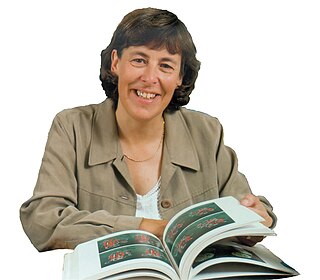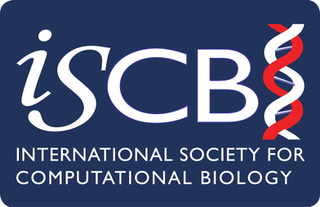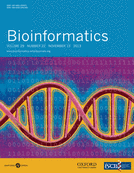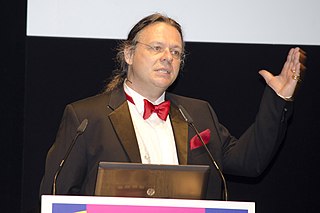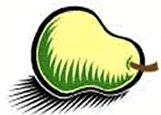| Conference | Keynote speakers | Title | Notes |
|---|
| ISMB 1994 [4] | Bruce Buchanan | | |
| Lawrence Hunter | | Plenary speaker |
| Richard J. Roberts | | Plenary speaker |
| ISMB 1995 [5] | Douglas Brutlag | | |
| John Sulston | | |
| Janet Thornton | | |
| ISMB 1996 [6] | Robert Waterston | | |
| David Haussler | | |
| Russell Doolittle | | |
| Chris Sander | | |
| ISMB 1997 [5] | Richard H. Lathrop | | |
| Marcie McClure | | |
| Hans Westerhoff | | |
| ISMB 1998 [7] | Robert Cedergren | | |
| Michael Waterman | | |
| Shoshana Wodak | | |
| ISMB 1999 [8] | Manfred Eigen | The Origin of Biological Information | |
| Amos Bairoch | Swiss-Prot in the 21st century! | |
| Richard M. Karp | Combinatorial Problems in Gene expression Analysis Using DNA microarrays | |
| Anthony R. Kerlavage | Computational genomics: Biological Discovery in Complete Genomes | |
| Eugene Koonin | Comparative genomics: Is it changing the paradigm of evolutionary biology? | |
| David Balaban | Genes, Chips, and Genomes | |
| Matthias Mann | Gene Function via the Mass Spectrometric Analysis of Multi-Protein Complexes |
| Michael Sternberg | Exploiting Protein Structure in the Post-genome Era | |
| ISMB 2000 [5] | Gerald Edelman | | |
| Leroy Hood | | |
| Minoru Kanehisa | | |
| J. Andrew McCammon | | |
| Eugene Myers | | |
| Harold Scheraga | | |
| David Searls | | |
| ISMB 2001 [5] | Christopher Burge | | |
| Chris Dobson | | |
| Sean Eddy | | |
| David Eisenberg | | |
| Bernardo Huberman | | |
| Chris Sander | | |
| Gunnar von Heijne | | |
| ISMB 2002 [9] | Stephen Altschul | Assessing the accuracy of database search methods, and improving the performance of PSI-BLAST | |
| Michael Ashburner | | |
| Ford Doolittle | | |
| Terry Gaasterland | | |
| Barry Honig | | |
| David Baker | | 2002 ISCB Overton Prize winner |
| John Reinitz | | |
| Isidore Rigoutsos | | |
| ISMB 2003 [10] | Sydney Brenner | The Evolution of Genes and Genomes | |
| David Haussler | Identifying functional elements in the human genome by tracing the evolutionary history of the bases: a key challenge for comparative genomics | |
| Yoshihide Hayashizaki | Dynamic Eukaryotic Transcriptome | |
| Jim Kent | Patching and Painting the Human Genome | 2003 ISCB Overton Prize winner |
| John Mattick | Programming of the autopoietic development of complex organisms: the hidden layer of noncoding RNA | |
| David Sankoff | The Parameters of Genome Rearrangement | 2003 ISCB Senior Scientist Award winner |
| Ron Shamir | Reconstructing Genetic Networks | |
| Michael Waterman | Dynamic Programming Algorithms for Haplotype Block Partitioning | |
| ISMB/ECCB 2004 [11] | Leroy Hood | Systems Biology: Strategies for Deciphering Life | |
| Denis Noble | Computational systems biology of the heart | |
| Eric D. Green | Decoding the Human Genome by Multi-Species Sequence Comparisons | |
| Svante Pääbo | Evolution of the primate transcriptome | |
| Matthias Mann | Organellar and time resolved proteomics | |
| Anna Tramontano | Progress, assessment and perspectives in protein structure prediction | |
| Uri Alon | Simplicity in complex biological networks | 2004 ISCB Overton Prize winner |
| David J. Lipman | Message and meaning in sequence comparison: is systems biology possible? | 2004 ISCB Senior Scientist Award winner |
| ISMB 2005 [12] | Howard Cash | Biology of Life and Death: Disaster, DNA and the Information Science of Human Identification | |
| Gunnar von Heijne | Membrane Proteins in vivo and in silico - Getting the Best of Two Worlds | |
| Jill Mesirov | Gene Expression Analysis: A Knowledge-based Approach | |
| Pavel A. Pevzner | Transforming Men into Mice: Fragile versus Random Breakage Models of Chromosome Evolution | |
| Peter Hunter | Computational Physiology and the IUPS Physiome Project | |
| Satoru Miyano | Computational Challenges for Gene Networks | |
| Ewan Birney | Genomes to Systems Biology | 2005 ISCB Overton Prize winner |
| Janet Thornton | From Proteins to Life - Old and New Challenges | 2005 ISCB Senior Scientist Award winner |
| ISMB 2006 [13] | Robert Huber | Molecular machines for protein degradation | |
| Tom Blundell | Structural biology, informatics and the discovery of new medicines | |
| Kurt Wüthrich | Computational Aspects of NMR Studies with Proteins in Solution | |
| Mathieu Blanchette | What mammalian genomes tell us about our ancestors, and vice versa | 2006 ISCB Overton Prize winner |
| Elena Conti | Molecular mechanisms in RNA degradation | |
| Charles DeLisi | New Approaches to Biomarker Discovery | |
| Richard J. Roberts | The need of Bioinformatics for experimental biologists | |
| Michael Waterman | Whole Genome Optical Mapping | 2006 ISCB Senior Scientist Award winner |
| ISMB/ECCB 2007 [14] | Eran Segal | Quantitative Models for Chromatin and Transcription Regulation | 2007 ISCB Overton Prize winner |
| Temple F. Smith | Computational Biology: What is next? | 2007 ISCB Senior Scientist Award winner |
| Søren Brunak | Understanding interactomes by data integration | |
| Stephen K. Burley | Fragment-based discovery of BCR-ABL inhibitors for treatment of chronic myelogenous leukemia | |
| Michael Eisen | Understanding and exploiting the evolution of the sequences that control gene expression | |
| Anne-Claude Gavin | Interaction Networks Probed by Mass Spectrometry | |
| John Mattick | The majority of the genome of complex organisms is devoted to an RNA regulatory system that directs differentiation and development | |
| Erin K. O'Shea | Dissecting Transcriptional Network Structure and Function | |
| Renée Schroeder | Genomic SELEX for the identification of novel non-coding RNAs independent of their expression level | |
| Terry Speed | Genome-wide genotyping: the great classification challenge | |
| ISMB 2008 [15] | Aviv Regev | Modular biology: the function and evolution of molecular networks | 2008 ISCB Overton Prize winner |
| David Haussler | 100 Million Years of Evolutionary History of the Human Genome | 2008 ISCB Senior Scientist Award winner |
| Claire M. Fraser-Liggett | Microbial Communities in Health and Disease | |
| David Jaffe | Tiny bits and pieces: new sequencing technologies and what they can do for you | |
| Eugene Myers | Imaging Bioinformatics | |
| Morag Park | Profiling the Breast Tumor Microenvironment | |
| Bernhard Palsson | Systems Biology: an era of reconstruction and interrogation | |
| Hanah Margalit | Intriguing roles for small non-coding RNAs in the cellular regulatory networks | |
| ISMB/ECCB 2009 [16] | Trey Ideker | New Challenges and Opportunities in Network Biology | 2009 ISCB Overton Prize winner |
| Webb Miller | Bioinformatics Methods to Study Species Extinctions | 2009 ISCB Senior Scientist Award winner |
| Pierre-Henri Gouyon | Information and Biology | |
| Daphne Koller | Individual Genetic Variation: From Networks to Mechanisms | |
| Thomas Lengauer | Chasing the AIDS Virus | |
| Eugenia María del Pino Veintimilla | The comparative analysis reveals independence of developmental processes during early development in frogs | |
| Tomaso Poggio | Computational Neuroscience: Models of the Visual System | |
| Mathias Uhlén | A global view on protein expression based on the Human Protein Atlas | |
| ISMB 2010 [17] | Steven E. Brenner | Ultraconserved nonsense: gene regulation by splicing & RNA surveillance | 2010 ISCB Overton Prize winner |
| Susan Lindquist | Protein Folding and Environmental Stress REDRAW the Relationship between Genotype and Phenotype | |
| Svante Pääbo | Analyses of Pleistocene Genomes | |
| Chris Sander | Systems Biology of Cancer Cells | 2010 ISCB Senior Scientist Award winner |
| David Altshuler | Genomic Variation and the Inherited Basis of Common Disease | |
| George M. Church | BI/O: Reading and Writing Genomes | |
| Robert Weinberg | Cancer Stem Cells and the Evolution of Malignancy | Special Public Lecture |
| ISMB/ECCB 2011 [18] | Bonnie Berger | Computational biology in the 21st century: making sense out of massive data | |
| Olga Troyanskaya | Integrating computation and experiments for a molecular-level understanding of human disease | 2011 ISCB Overton Prize winner |
| Janet Thornton | The Evolution of Enzyme Mechanisms and Functional Diversity | ECCB 10th Anniversary Keynote |
| Alfonso Valencia | Challenges for Bioinformatics in Personalized Cancer Medicine | 2011 ISCB Fellow |
| Luis Serrano | M. pneumoniae (Towards a full quantitative understanding of a free-living system) | |
| Michael Ashburner | From sequences to ontologies - adventures in informatics | 2011 ISCB Senior Scientist Award winner |
| ISMB 2012 [19] | Richard H. Lathrop & Lawrence Hunter | Seeing forward by looking back | ISMB 20th Anniversary Keynote |
| Ziv Bar-Joseph | Data integration for understanding dynamic biological systems | 2012 ISCB Overton Prize winner |
| Barbara Wold | Analysis of transcriptome structure and chromatin landscapes | |
| Richard M. Durbin | Progress, challenges and opportunities in population genome sequencing | 2012 ISCB Fellow |
| Andrej Šali | Integrative Structural Biology | |
| Gunnar von Heijne | The other Third: Coming to grips with membrane proteins | 2012 ISCB Senior Scientist Award winner |
| ISMB/ECCB 2013 [20] | Gil Ast | How Chromatin organization and epigenetics talk with alternative splicing | |
| Gonçalo Abecasis | Insights from Sequencing Thousands of Human Genomes | 2013 ISCB Overton Prize winner |
| Lior Pachter | Sequencing based functional genomics (analysis) | |
| Gary Stormo | Searching for Signals in Sequences | 2013 ISCB Fellow |
| Carole Goble | Results may vary: what is reproducible? why do open science and who gets the credit? | |
| David Eisenberg | Protein Interactions in Health and Disease | 2013 ISCB Senior Scientist Award winner |
| ISMB 2014 [21] | Isaac Kohane | Biomedical Quants of the World Unite! We only have our disease burden to lose | |
| Eugene Myers | DNA Assembly: Past, Present, and Future | 2014 ISCB Senior Scientist Award winner |
| Michal Linial | Good Things Come in Small Packages – Replicators and Innovators | |
| Dana Pe'er | A multidimensional single cell approach to understand cellular behavior | 2014 ISCB Overton Prize winner |
| Robert S. Langer | Biomaterials and biotechnology: From the discovery of the first angiogenesis inhibitors to the development of controlled drug delivery systems and the foundation of tissue engineering | |
| Russ Altman | Informatics for understanding drug response at all scales | 2014 ISCB Fellow |
| ISMB 2015 [3] | Michael Levitt | Birth & Future of Multiscale Modeling of Macromolecules | |
| Curtis Huttenhower | Understanding microbial community function and the human microbiome in health and disease | 2015 ISCB Overton Prize winner |
| Eileen Furlong | Genome regulation during embryonic development | |
| Kenneth H Wolfe | TBA | |
| Cyrus Chothia | TBA | 2015 ISCB Senior Scientist Award winner |
| Amos Bairoch | TBA | 2015 ISCB Fellow |
| ISMB 2016 [22] | Ruth Nussinov | Ras signaling: a challenge to the biological sciences | 2016 ISCB Fellow |
| Debora Marks | | 2016 ISCB Overton Prize winner |
| Sandrine Dudoit | Identification of Novel Cell Types in the Brain Using Single-Cell Transcriptome Sequencing | |
| Sarah Teichmann | Understanding Cellular Heterogeneity | |
| Serafim Batzoglou | | 2016 ISCB Innovator Award winner |
| Søren Brunak | | 2016 ISCB Senior Scientist Award winner |

